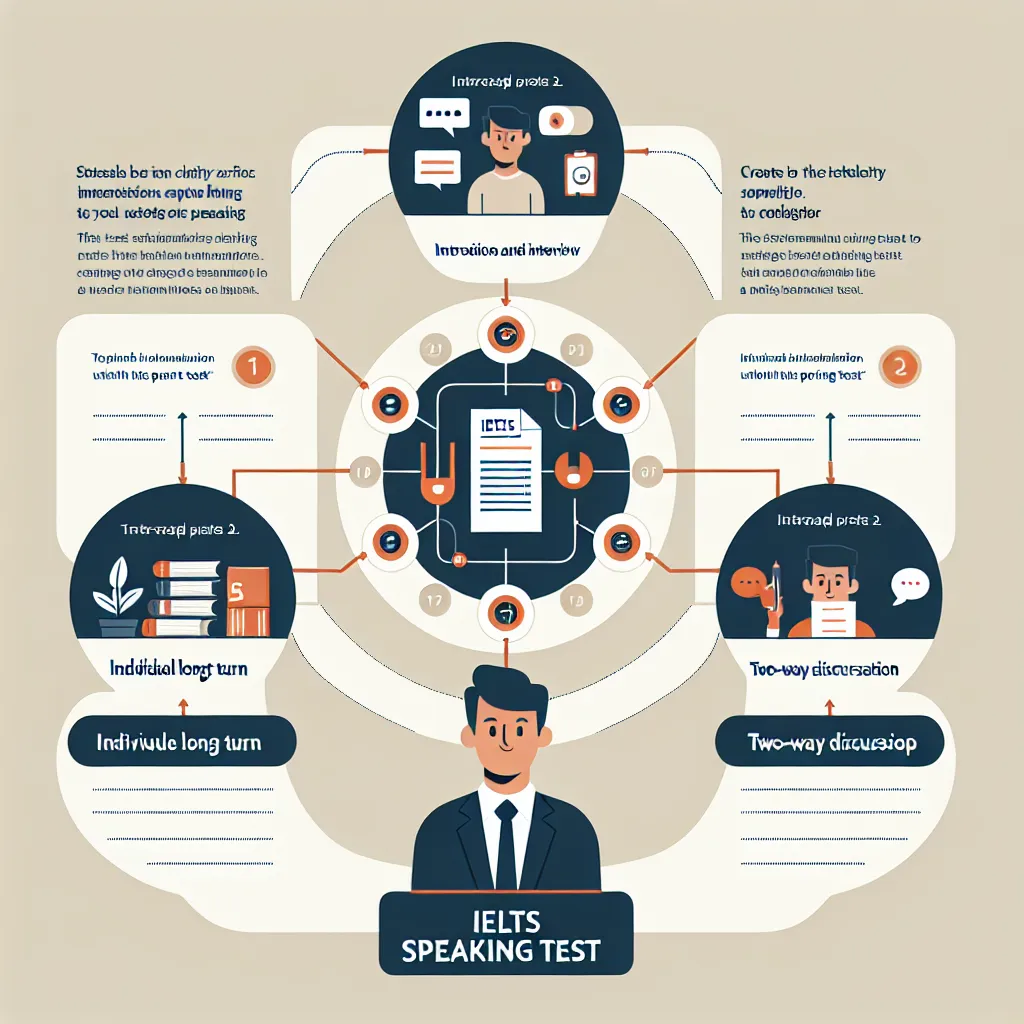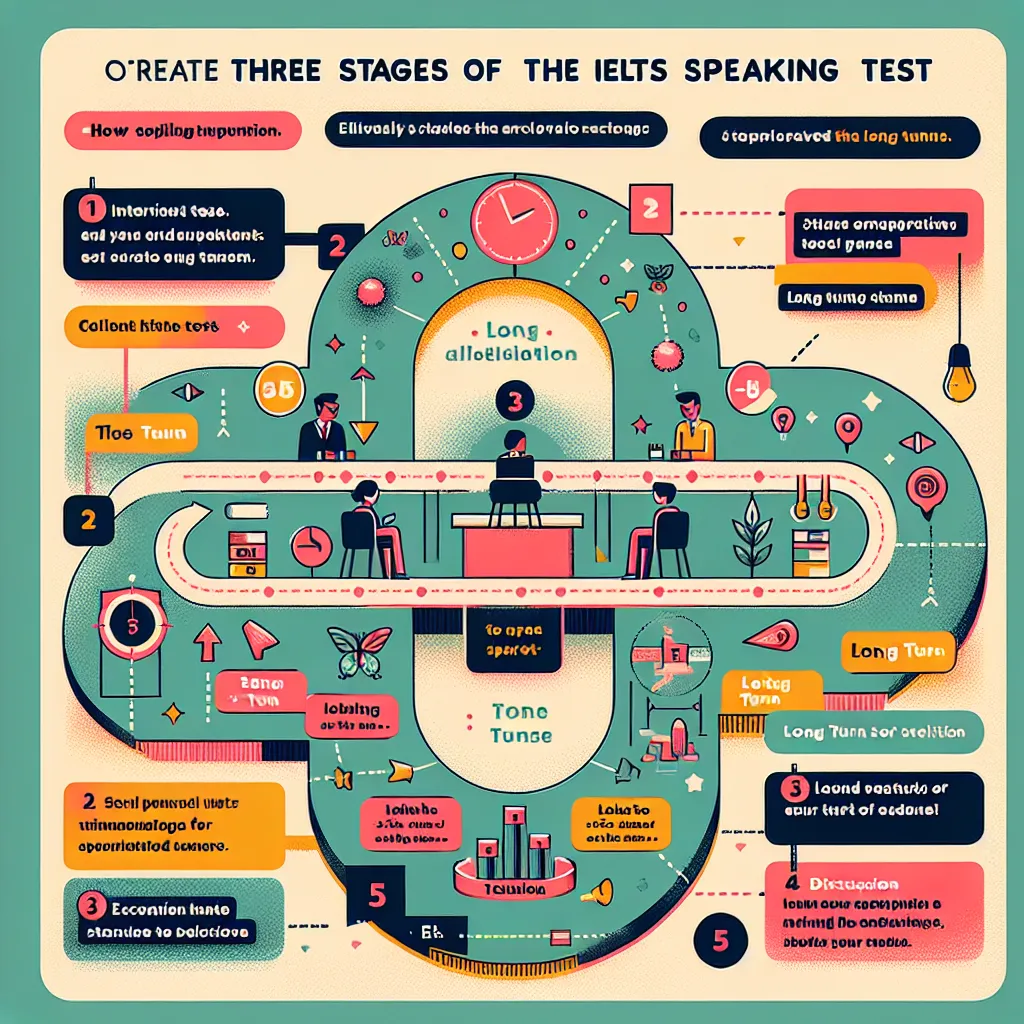Are you preparing for the IELTS Speaking test and wondering how to practice effectively from the comfort of your home? Look no further! This comprehensive guide will provide you with valuable insights and practical tips on how to enhance your speaking skills for IELTS success. Whether you’re a beginner or looking to improve your current score, these strategies will help you master the art of IELTS Speaking.
Understanding the IELTS Speaking Test
Before diving into practice techniques, it’s crucial to understand the structure and requirements of the IELTS Speaking test. This knowledge will help you tailor your practice sessions for maximum effectiveness.
Structure of the IELTS Speaking Test
The IELTS Speaking test is divided into three parts:
- Part 1: Introduction and Interview (4-5 minutes)
- Part 2: Individual Long Turn (3-4 minutes)
- Part 3: Two-way Discussion (4-5 minutes)
Each part assesses different aspects of your speaking abilities, including fluency, vocabulary, grammar, and pronunciation.
 IELTS Speaking Test Structure
IELTS Speaking Test Structure
Effective Strategies for Practicing IELTS Speaking at Home
1. Create a Speaking-Friendly Environment
To make the most of your at-home practice, set up a dedicated space that mimics the test environment:
- Find a quiet room with minimal distractions
- Set up a table and chair similar to those in the test center
- Use a timer to keep track of your speaking duration
2. Utilize Online Resources and Apps
Take advantage of the wealth of online resources available for IELTS Speaking practice:
- IELTS official website: Access sample questions and practice materials
- YouTube channels: Watch videos of mock speaking tests and expert tips
- Language exchange apps: Connect with native speakers or other IELTS candidates
Learn more about the best IELTS preparation resources
3. Record and Analyze Your Responses
One of the most effective ways to improve your speaking skills is by recording yourself:
- Use your smartphone or computer to record your answers to practice questions
- Listen to your recordings and identify areas for improvement
- Focus on fluency, pronunciation, grammar, and vocabulary usage
4. Practice with IELTS Speaking Topics
Familiarize yourself with common IELTS Speaking topics and practice answering questions on these subjects:
- Family and friends
- Work and education
- Hobbies and interests
- Travel and transportation
- Technology and social media
Explore a comprehensive list of IELTS Speaking topics
5. Develop Your Vocabulary
Expanding your vocabulary is crucial for IELTS Speaking success:
- Learn new words and phrases related to common IELTS topics
- Practice using idiomatic expressions and collocations
- Create a vocabulary journal to track your progress
6. Improve Your Pronunciation
Clear pronunciation is essential for effective communication:
- Use online pronunciation resources to practice difficult sounds
- Focus on word stress and sentence intonation
- Listen to native speakers and try to mimic their pronunciation
7. Practice Time Management
Managing your time effectively during the test is crucial:
- Use a timer when practicing Part 2 (Individual Long Turn) to ensure you speak for the full 2 minutes
- Practice giving concise answers in Part 1 and elaborating in Part 3
8. Engage in Self-Talk and Narration
Boost your speaking fluency by incorporating English into your daily life:
- Narrate your daily activities in English
- Practice self-talk while doing household chores
- Describe objects, people, or situations around you in English
9. Use IELTS Speaking Templates
Familiarize yourself with useful phrases and structures for different parts of the test:
- Learn introductory phrases for Part 2
- Practice transitional expressions for Part 3
- Develop strategies for buying time when you need to think
Discover effective IELTS Speaking templates
10. Seek Feedback and Practice with Others
While practicing at home, it’s important to get feedback on your performance:
- Join online IELTS study groups or forums
- Practice with friends or family members who speak English
- Consider online tutoring or language exchange partnerships
 IELTS Speaking Practice at Home
IELTS Speaking Practice at Home
Common Mistakes to Avoid in IELTS Speaking Practice
When practicing for IELTS Speaking at home, be mindful of these common pitfalls:
- Memorizing scripted answers: Examiners can easily detect rehearsed responses
- Neglecting fluency: Focus on speaking naturally rather than perfectly
- Ignoring body language: Practice maintaining eye contact and using appropriate gestures
- Overusing filler words: Minimize the use of “um,” “uh,” and other fillers
- Not asking for clarification: Practice politely asking the examiner to repeat or rephrase questions
Next Steps: Taking Your IELTS Speaking Practice Further
Now that you have a solid foundation for practicing IELTS Speaking at home, consider these next steps to further enhance your skills:
- Take mock tests regularly to simulate the real exam experience
- Join online IELTS Speaking workshops or webinars
- Practice with a variety of accents to improve your listening skills
- Create a study schedule to ensure consistent practice
- Review and learn from your mistakes after each practice session
Explore advanced IELTS Speaking strategies
By following these strategies and dedicating time to regular practice, you’ll be well-prepared to excel in your IELTS Speaking test. Remember, consistency is key, and with focused effort, you can significantly improve your speaking skills from the comfort of your home. Good luck with your IELTS preparation!




